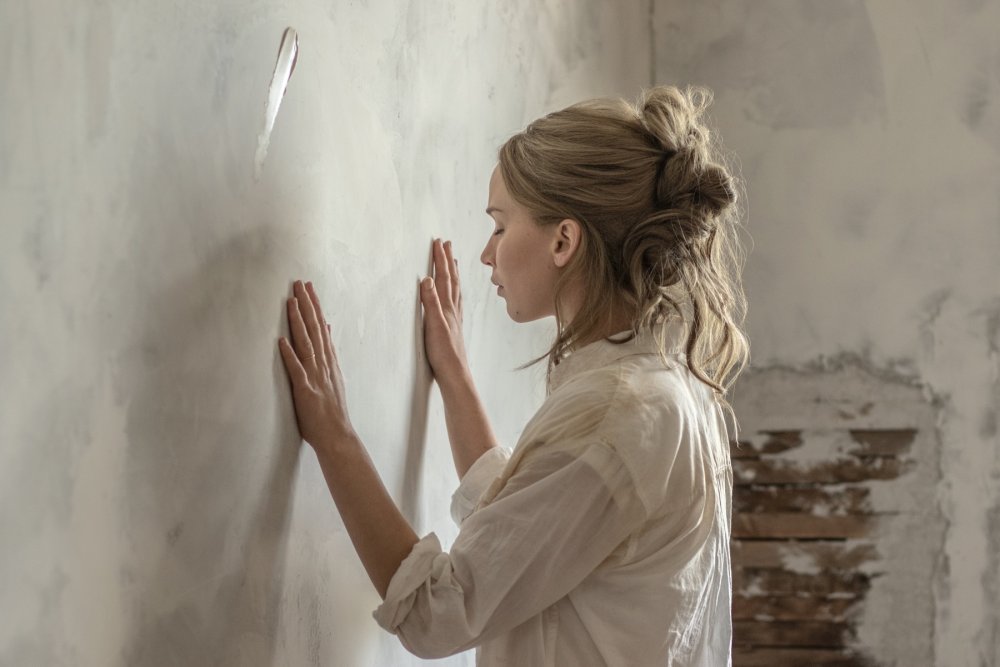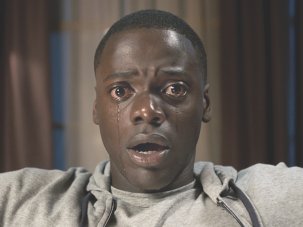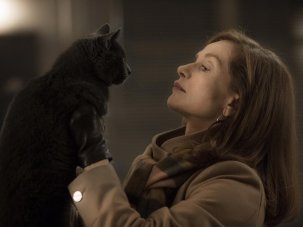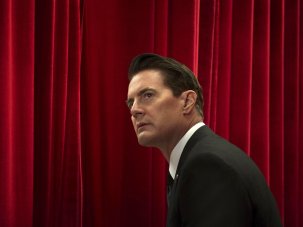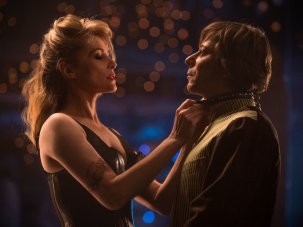Spoiler alert: this review reveals key plot details
Mother! is a preposterous, self-important and utterly crass movie, of the sort I’ve come to expect from writer-director Darren Aronofsky. It is also a virtuoso performance that flexes more filmmaking muscle than almost anything else that’s appeared in a multiplex over the course of this woebegone year, a film that establishes a tone of pervasive anxiety, then sets about the task of gathering narrative kindling to be set alight in a blowout Walpurgisnacht.
USA 2017
Certificate 18 121 mins
Director Darren Aronofsky
Cast
Mother Jennifer Lawrence
Him Javier Bardem
Man Ed Harris
Woman Michelle Pfeiffer
Younger Brother Brian Gleeson
Oldest Son Domhnall Gleeson
Cupbearer Jovan Adepo
Damsel Amanda Chiu
Consoler Patricia Summersett
[2.35:1]
UK release date 15 September 2017
Distributor Paramount Pictures UK
movies.powster.com/mother
► Trailer
Jennifer Lawrence, playing the young bride of a pretentious and somewhat older famous poet, is positioned at the movie’s centre, though usually a semi-mute witness to action in the house that she keeps and cares for. Save for two bookending scenes, the narrative is entirely filtered through her eyes; she is very often tracked in moving, choreographed closeups which recall Aronofsky’s treatment of Mickey Rourke in The Wrestler (2008); and more than once the camera’s point-of-view is aligned intimately with her own, as when she looks down in the shower at the swell of her pregnant stomach.
The poet is played by Javier Bardem, with his large, noble head made for a flyleaf photo – I suspect the movie is having fun with the very absurdity of the idea of a ‘famous poet’ in the 21st century, and the role seems to be conceived as a combination of Khalil Gibran and David Koresh. As the film begins, the couple live together in isolation in a massive country home, but then they receive an unexpected visitor in the form of a doctor (Ed Harris) and his wife (Michelle Pfeiffer), who take an invitation to spend the night as an opening to act like they own the place – much to the chagrin of Lawrence’s flustered but dauntlessly deferential wife. (Proper names are eschewed here, recalling the parable form popular in silent cinema.)
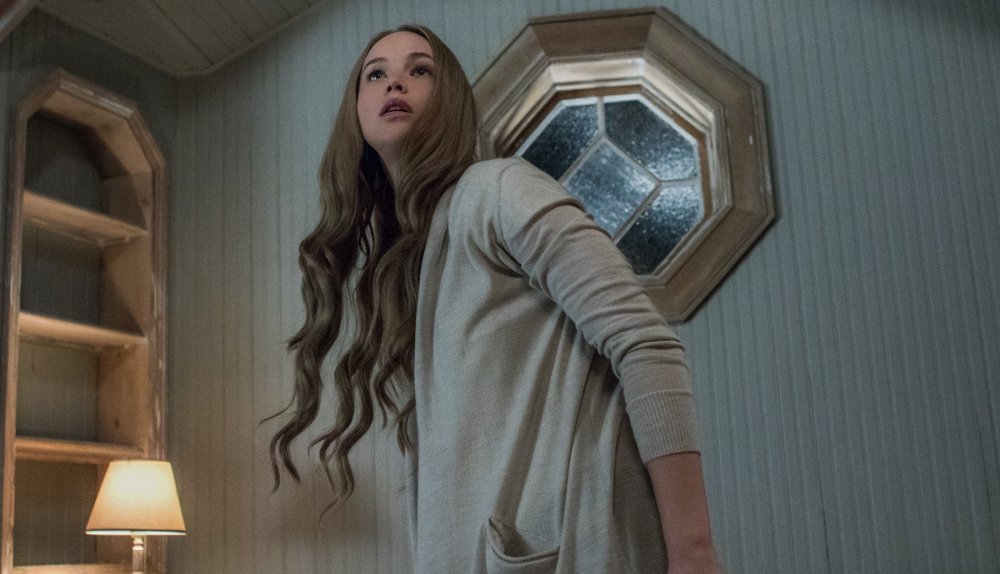
Mother! is structured as a kind of death-by-a-thousand-impositions, the impact of each registering in the Lawrence character’s first flustered, then panic-stricken expression. (The score, by Jóhann Jóhannsson, frequently cedes the soundtrack to the minutely detailed sound design, in which every thump and creak of the old house can be acutely, agitatingly felt.)
After a brief abatement which follows her pregnancy, the litany of infringements is resumed with a new force, and the movie throws off any remaining tethers connecting it to any recognisable form of realism – there weren’t many to begin with – as the house becomes a literal battle zone, a manifestation of the near-impossibility of cloistering one’s self away from images of chaos and suffering in the era of the unending, panic-fuelled news cycle.
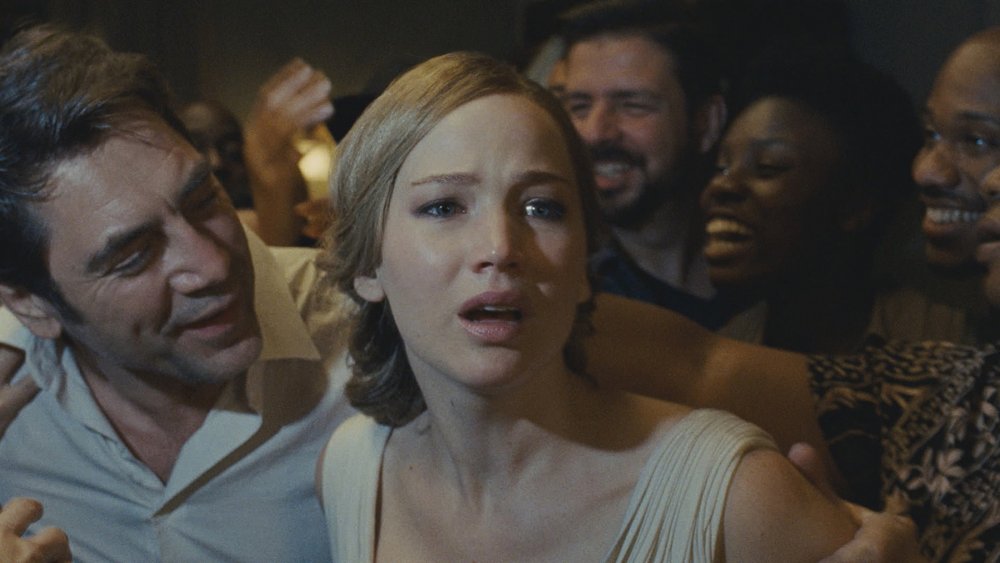
I can’t say how much of this resonance is intentional, though there is much here to indicate that Aronofsky had other definite things on his mind with this project. As events take a turn for the apocalyptic, we are treated to a cannibalistic parody of the eucharistic liturgy. The union between the Lawrence character and her celebrity poet husband plays out as a parable of creative vampirism, with he the preening Great Man, seemingly oblivious of the toll that his magnanimity takes on his doormat partner, finally unmasked as a kind of immortal Bluebeard, burning his way through muses while emerging himself unscathed in what appears to be an unending cycle. (Here it may be mentioned that the 48-year-old Aronofsky is currently romantically involved with the 27-year-old Lawrence, a fact that offers fuel for film-à-clef speculation.)
It doesn’t take a great deal of exegesis to render up these ideas; fortunately the sheer presence of the movie gives it a power that transcends its use as a vehicle for thematic delivery. While Aronofsky’s bona fides as a technician have never been in any doubt, the same can’t be said of the material that he’s chosen put his skill to – in Mother!, however, he has turned in the single most sustained performance of his career.
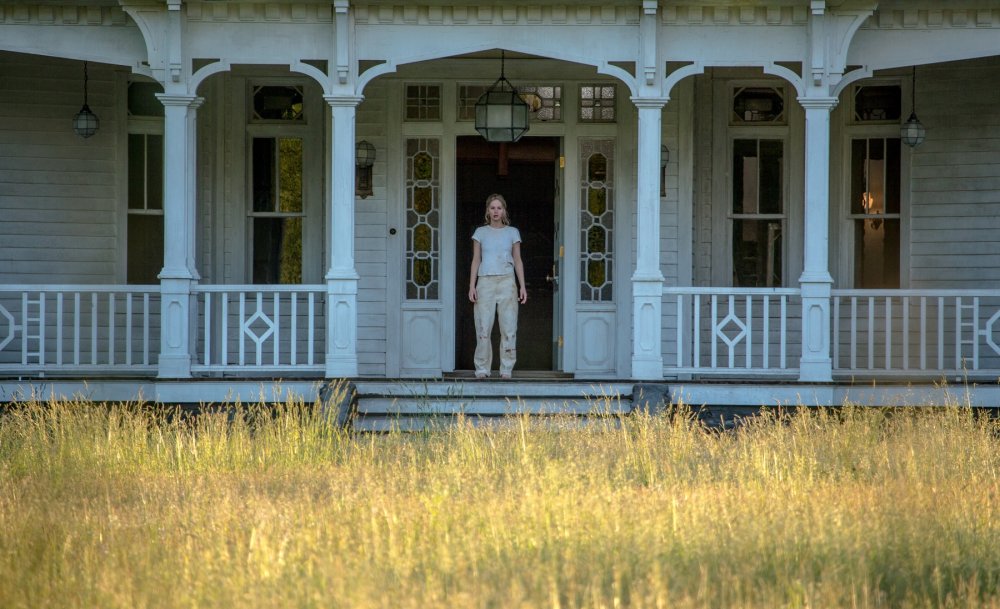
In his second-best movie, The Wrestler, produced in a chastened moment after the public rejection of The Fountain (2006), Aronofsky seemed to be suppressing his more baroque impulses to work in something close to the style of Jean-Pierre and Luc Dardenne. Here the influence of Roman Polanski’s ‘Apartment Trilogy’ can be felt in the way that Aronofsky gradually ratchets up the level of persecutorial disquiet, and the mounting claustrophobia owes something to Ionesco’s The New Tenant, but in its final crescendo of masterfully orchestrated chaos, Mother! becomes something significantly more than the work of a gifted movie brat mimic.
It’s impossible to say if this accomplishment signifies a levelling up for Aronofsky, or only the classic case of the stopped clock that’s right twice a day, but with this brash, ludicrous, bludgeoning film he has made a work that embodies the pervasive feeling that no domestic fortifications can hold the day against what’s on the horizon. It is an easy mark for mockery, and the overwhelming temptation to laugh it off as more bad taste run amok is understandable – for it contains a true sense of the awful, and that is always more comforting to ignore.
In the October 2017 issue of Sight & Sound
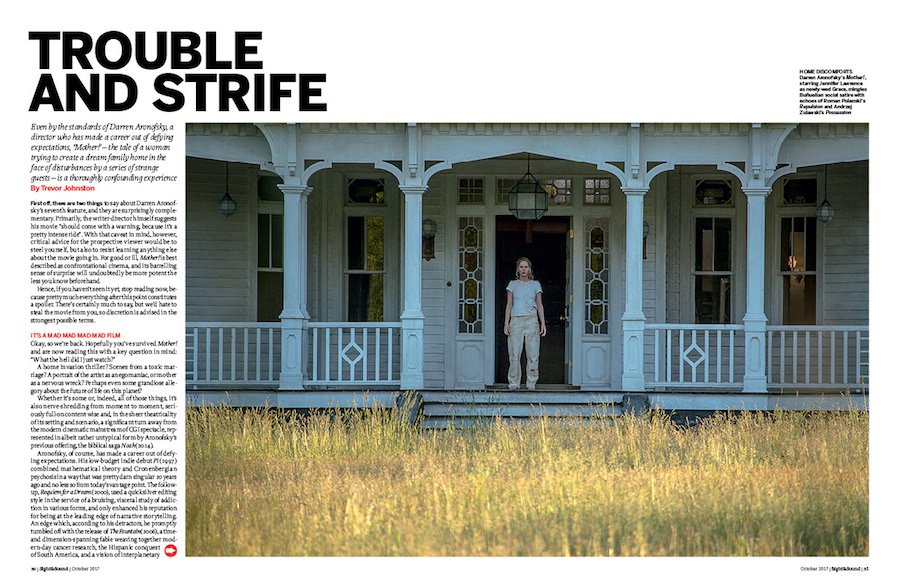
Trouble and strife
Even by the standards of Darren Aronofsky, a director who has made a career out of defying expectations, Mother! – the tale of a woman trying to create a dream family home in the face of disturbances by a series of strange guests – is a thoroughly confounding experience. By Trevor Johnston.
-
Sight & Sound: the October 2017 issue
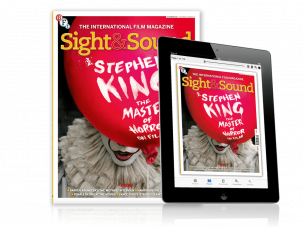
The cinema of Stephen King, plus female desire at the movies, Hanif Kureishi on Peter Sellers’ Indian characters, Darren Aronofsky on Mother and...
-
The Digital Edition and Archive quick link
Log in here to your digital edition and archive subscription, take a look at the packages on offer and buy a subscription.




